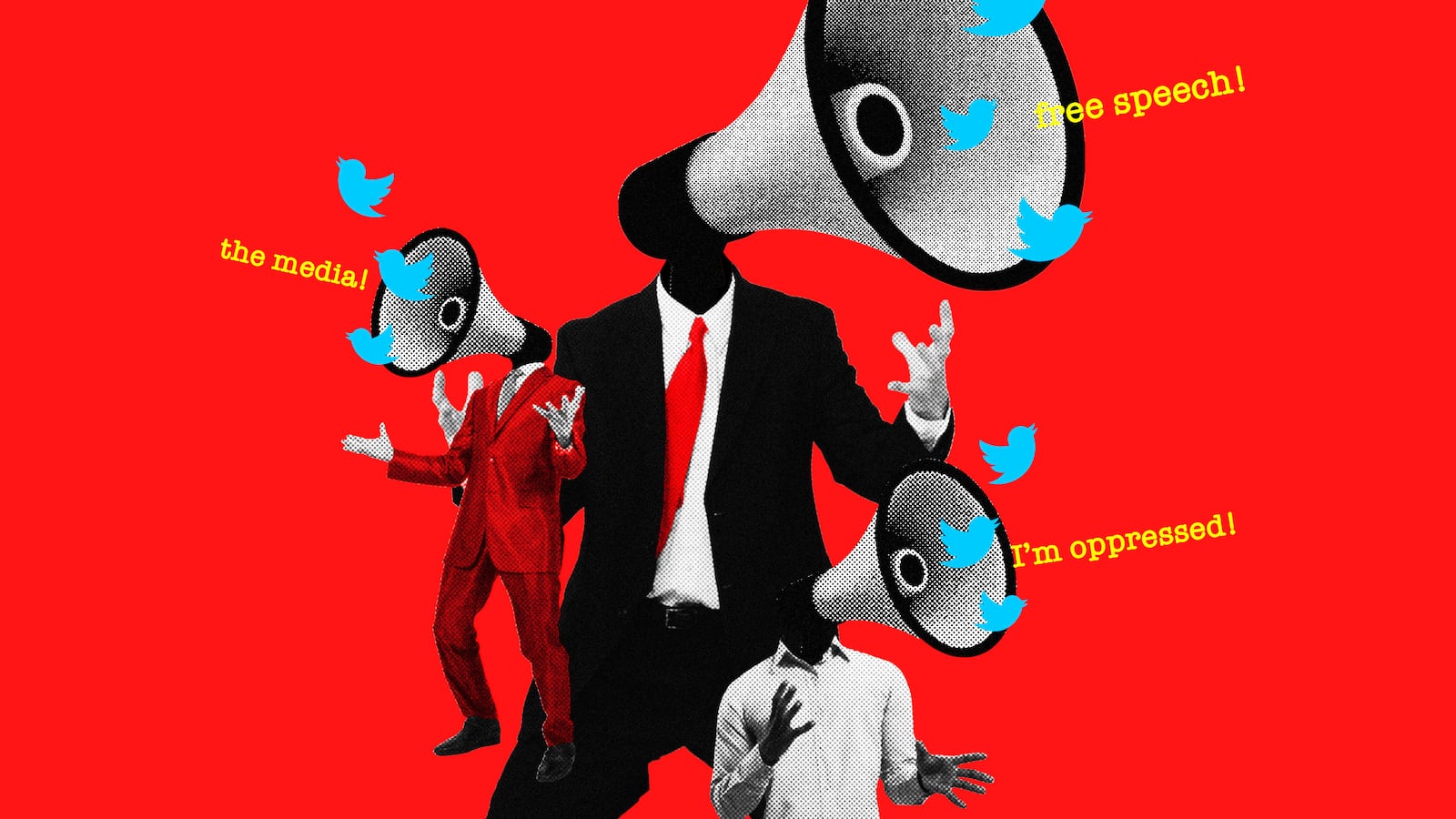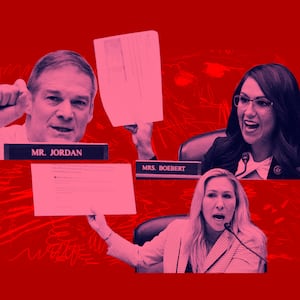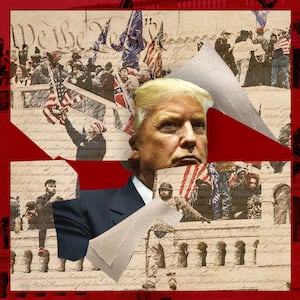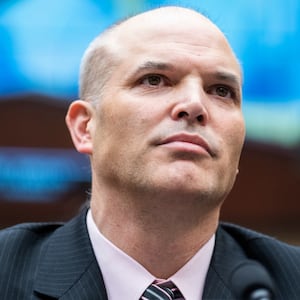We live in the age of self-aggrandizing victimhood. Why take responsibility for your own actions when you can blame outside forces? The election was rigged. The media is out to get me. My neighbors on Martha’s Vineyard no longer want me shilling my books at the local library.
And while there are certainly cases where bad things happen through outside forces, over the past few years this kind of performative victimhood (as a way to avoid responsibility) has taken on a life of its own through a different kind of moral panic: one in which people who are simply facing reasonable consequences for their own speech or actions try to tie themselves awkwardly to actual unfair scenarios of opprobrium, in order to frame the criticism as unfair.
We saw this a few years ago in the infamously milquetoast Harper’s Letter on Justice and Open Debate, in which a bunch of mostly uncontroversial claims were made regarding the importance of “the free exchange of ideas,” while implying that “cancel culture,” was somehow a grave threat. The letter gave vague descriptions of a few scenarios that seemed unfair, without exploring the details and nuances. But, even worse, it lumped together scenarios where there were likely reasonable arguments for why someone might face the consequences of their own actions, with the relatively rare scenarios in which public ridicule or humiliation was perhaps unwarranted.
Last week we saw a new entrant in this genre—self-importantly dubbed, “The Westminster Declaration”—talking up concerns about international censorship.
To be clear, I have many concerns about international censorship, and have spent much of the past two decades fighting against all sorts of government censorship campaigns across various countries. I’ve fought in court for free speech rights and criticized attempts by governments around the globe to move towards censorship.
And thus, I think there is much in the Westminster Declaration that is worth supporting. We’re seeing laws pushed, worldwide, that seek to silence voices on the internet. Global attacks on privacy and speech-enhancing encryption technologies are a legitimate concern.
But the Declaration—apparently authored by Michael Shellenberger and Matt Taibbi, along with Andrew Lowenthal, according to their announcement of the document—seeks to take those legitimate concerns and wrap them tightly around a fantasy concoction. It’s a moral panic of their own creation, arguing that separate from the legitimate concern of censorial laws being passed in numerous countries, there is something more nefarious—what they have hilariously dubbed “the censorship-industrial complex.”
To be clear, this is something that does not actually exist. It’s a fever dream from people who are upset that they, or their friends, violated the rules of social media platforms and faced the consequences.
But, unable to admit that private entities determining their own rules is an act of free expression itself (the right not to associate with speech is just as important as the right to speak), the crux of the Westminster Declaration is an attempt to commingle legitimate concerns about government censorship with grievances about private companies’ moderation decisions.
Taibbi and Shellenberger were two of the leading writers of the so-called “Twitter Files,” supposed pieces of investigative journalism built on information Elon Musk allowed them to see—mostly emails of former Twitter employees—to try to understand how pre-Musk Twitter made moderation decisions.
Unfortunately, Taibbi and Shellenberger had little understanding of what they were looking at, meaning they made confused and often blatantly incorrect or misleading interpretations.
If you read the Twitter Files’ underlying documents, they actually showed a company that struggled with the same moderation decisions that every company struggles with. They showed a company that more often than not pushed back on or ignored reports sent from government entities (which reported content to be evaluated against a site’s rules, just like anyone else could report spam or harassment).
Just as one example, Taibbi and Shellenberger stated that the Election Integrity Partnership (a consortium of academic researchers, which is not the government, though it did accept a small number of reports from election officials) reported 22 million tweets to Twitter. This was false. It flagged 2,890 tweets (it later studied 22 million tweets to understand how disinformation spread) for Twitter to look at, and Twitter reviewed them and did nothing about most of them, only taking action on a small fraction of the flagged content (less than 30 percent).
And when Twitter actually took action, more often than not it added context (i.e. using its own speech, which you’d think these defenders of free expression would support). In the extremely rare cases where content was removed (in less than 10 percent of the flagged tweets), the tweets were either phishing scams or outright lies about when and how to vote—in other words, tweets that were so illegal someone just got sentenced to seven months in prison over them.
Anyone who actually understands how social media works found the Twitter Files the opposite of scandalous. They actually showed a surprising level of competence by the former team at Twitter, tasked with the impossible job of keeping 200+ million people from fighting all the time or, worse, scamming others.
With the Westminster Declaration, Taibbi and Shellenberger seek to transform the emptiness of their Twitter Files reporting into a modern day Pentagon Papers, by adding it to legitimate attempts by governments to pass dangerous censorial laws that strip away speech rights, and pretending that these are all the same. (Even more ridiculously, the Declaration’s authors imply that the Twitter Files—which showed private companies exercising their own speech rights—are somehow worse than governments passing speech suppressing laws.)
As with the Harper’s Letter, Taibbi and Shellenberger were able to convince some true free speech supporters to sign onto this declaration, and then surrounded them with people who are grifters of the first order. The “cancel culture” brigade is out in force, signing on to the declaration to declare themselves victims of attacks on free speech.
There are too many names to go through them all, but the list includes long-term grievance peddlers like Jordan Peterson, Bret Weinstein, and Glenn Greenwald, who have spent the past few years insisting that the powers that be wish to silence them, even as they get more attention than ever before.
Let’s look at one example: Peter Boghossian, a philosopher who was found to have violated research ethics rules while he was an assistant professor at Portland State University, and subsequently has become such a defender of “free expression” and “classical liberalism” that he has become a guest instructor at the Mathias Corvinus Collegium (MCC), a Hungarian organization funded by Hungary’s extremely illiberal autocratic leader, Viktor Orban, to steer Hungarian academics from going too woke. (Nothing says free expression and liberal debate like working for an authoritarian strongman at a university whose entire role is to shut down teaching on topics you disapprove of.)
Another example is Jonathan Haidt, the psychologist and ethics professor, who has become the darling of many who seek to regulate social media after claiming the evidence shows that social media is the cause of both the fall of democracy and mental wellbeing.
Leaving aside the fact that social scientists reviewing the data Haidt relied on for both claims have highlighted that he misread the data in both cases, it seems odd for him to sign on to this document, which effectively argues that any attempt by social media companies to mitigate harms on their platform (the very harms that Haidt keeps insisting are dangerous to society) is somehow an attack on the rights of free expression the document insists must be protected.
The only consistent way to read this is Haidt arguing that social media creates real harms to society, but any social media company attempting to minimize those harms is a threat to the fabric of democracy.
But there is no consistency here in any of this.
That is the Westminster Declaration in a nutshell. It’s inherently contradictory. To protect our free speech rights, we must take away the free speech rights of others.
The Taibbi/Shellenberger interpretation of the Twitter Files is an attempt to shut down the rights of private companies to enforce their own rules and cultivate their own communities, by laundering it with actual censorial government acts.
Even worse, their framing seeks to shut down and destroy the free speech rights of academic organizations that are studying how disinformation spreads. For all their talk of supporting free speech, the inclusion of the (misrepresented) Twitter Files is literally the opposite: an attempt to silence debate, research, and exploration in how to respond to nonsense—the very nonsense many of those who signed the Westminster Declaration make their living spreading.










